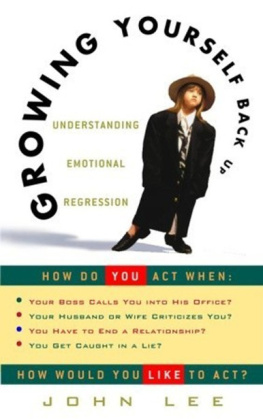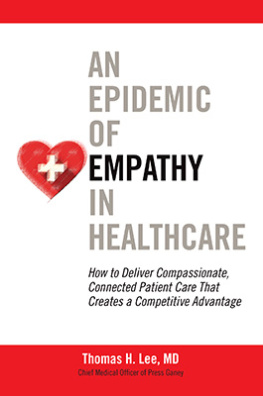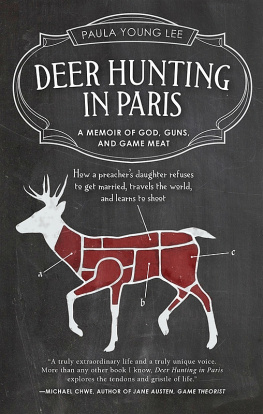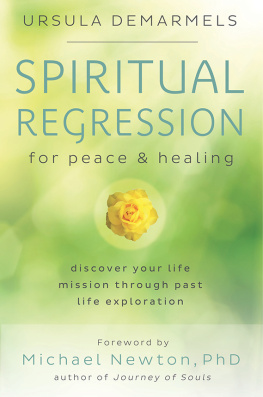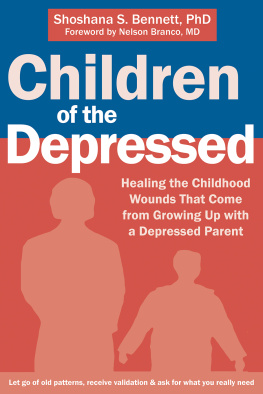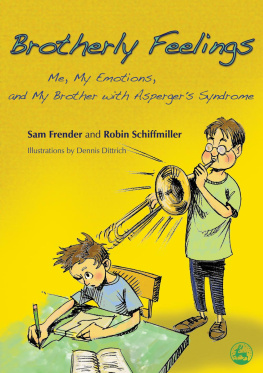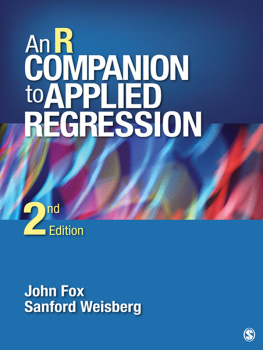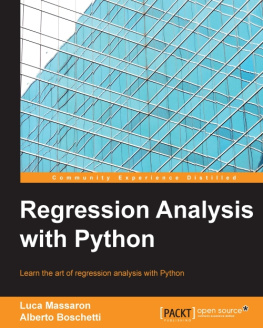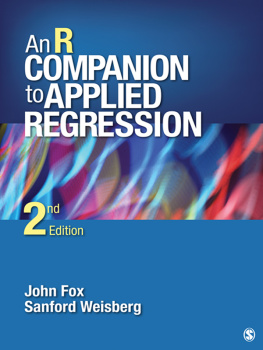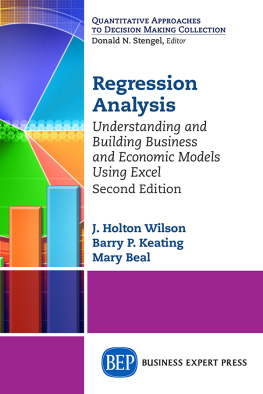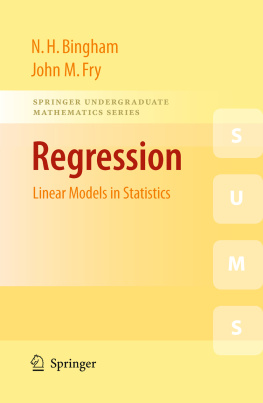ACKNOWLEDGMENTS
I d have to write a Cliffs Notes version of the book to thank all the people who have made this book possible.
You wonderful people who have been coming to my lectures and workshops for yearsthank you so much for your prayers and support and for loving this material.
Dr. Margaret Shanahan and Dr. Robert MooreI never would have taken on such a task had you not encouraged me, talked to me, and even sent me the first of many important academic texts in the field of self psychology. I thank you ever so much for your confidence in my ability to take such valuable information and translate it into a language that the general public can use and that clinicians will not be embarrassed to be seen reading.
Vijay Director, Connie Burns, Karen Blicher, and all the people in the PEER Training ProgramI can never repay your kindness or thank you enough for your valuable input and support. I hope that listening to me use the word regression ten million times over the last five years has not ruptured your ears.
Dr. James MaynardI cant tell you what an excellent mentor, therapist, and guide you have been to me. There is so much in this book that would not be here were it not for your brilliance.
Robert Blyyour support, friendship, and hours and hours of listening, reading, and making valuable suggestions is worth all the tea in China. You have taught me so much both as a writer and as a man and have been generosity incarnate.
Bill Stotttireless worker and friend, you have read everything Ive written for over sixteen yearsand even liked some of it. Youve helped me polish my books and my life and been there for me when I could barely put one foot in front of the other.
Dan Jonesyou know I wouldnt be writing this acknowledgment page, this book, or any of my previous books were it not for your seventeen years of love, friendship, and partnership. I want to thank you.
Joy Parkermy editor (hopefully youll edit this), youve truly been a godsend and have not only done a brilliant job as midwife in this very tiring, ecstatic birthing process, but through it all you have exhibited patience par excellence.
Linda Loewenthalyouve been more than a writers dream publisher. Youve been a good, honest, and supportive friend, who has believed in me and my work for over a decade. I hope we both will get to relish the fact that this book is going to help a lot of people.
Susan Leemy loving wife, your love, patience, time, energy, and support and your belief in me as a man and a writer is immeasurable. You have also contributed as editor and sounding board. Your loving friendship flows through these pages.
I also want to thank God, who made two computers crash and who never edited a line, but who at least gave me great people to share my life with. What glory comes to this book goes back to you.
CONTENTS
I find myself for a moment in the interesting position of not knowing whether what I have to say should be regarded as something long familiar and obvious or as something entirely new and puzzling.
S IGMUND F REUD
INTRODUCTION
R egression is what happens to us when, emotionally, we leave the present moment. By contrast, staying present with yourself, your partner, your children, friends, colleagues, and boss means that, emotionally, you are completely in the here and now, and that a small part of you is neither wandering over the hills and valleys of your past nor trying to predict the future. While staying present is one of the greatest gifts you can give to yourself and others, it is much easier said than done.
When we regress, we go from being clear-thinking adults to talking, acting, and sometimes even looking like children who are not getting their way. We feel powerless and out of control, as if we dont have choices. We think we know what others need, but at the moment we cant say what we ourselves need. As we regress, we fall back toward an earlier time in life, usually childhood. When this happens, we very often think that others are being childish, and we might even make the fatal mistake of telling them, I think youre regressing.
By picking up this book, you have taken the first step toward learning skills to help you avoid regression. When you understand the phenomenon of regression, you will find yourself really being seen and heard by others, and you will learn to listen to others in new ways. Cultivating this skill will move your life forward in a way that you could never have imagined.
When you regress, you slip into past ways of perceiving, feeling, and thinking that make you unable to see all of the choices available to you in the present. You probably regress because you are feeling unsafe, an experience that many of us felt as children. You might also feel as if forces greater than yourself are in control, and that you have no choice but to follow someone elses moods, whims, feelings, and directions. Another trigger for regression is feeling that someone important is abandoning you, when in fact regression is really your abandoning of your mature adult self.
In a very real sense, I have been gathering material and experiences to write this book for the last fifteen years. My first glimmering of regression came from the hundreds of workshops I led on anger. As I taught others about this very misunderstood feelinghow to recognize it, understand it, and express it in a conscious and healthy wayI realized that anger is no more negative than any other feeling, such as joy or sadness. I also knew, however, that anger has a dark cousin, rage. Rage occurs when anger festers in a person, without release, to the point where he or she regresses to a childish state and explodes or implodes.
I realized that I had to differentiate anger, which everybody feels at times and has a perfect right to express in appropriate ways, from rage, which cannot be expressed safely and harms both those on whom it is inflicted and those who inflict it. Rage is not a feeling but rather a behavior or action that a person demonstrates when they are emotionally regressing. They regress because they are afraid to feel their feelings of sadness, anger, hurt, loneliness, or abandonment. In other words, anger is a grown-up emotion that we feel in the present. Rage is a behavior that we exhibit when we get stuck in feelings left over from unresolved situations and relationships in the past.
When I realized this, I knew I was on to something important, and I had to find out more. Since the personal growth psychology literature contains almost nothing on emotional regression (which is not to be confused with past-life regression), I read mostly academic psychology books to see what I could learn. Most psychologists and psychiatrists, I discovered, use the word infrequently. A field called self psychology often discusses regression, though in ways that are difficult to understand. It took me several years to get clear in my mind what the self psychologists meant to say. When I did, I began using some of their ideas, reformulated in my very personal and, some say, humorous presentation style, in some of my public talks and workshops.

